
How to Detox After Eating Oily Food
Feeling uncomfortable after indulging in oily foods? You're not alone. This comprehensive guide will help you understand how to effectively detox and recover from consuming oily foods, based on scientific research and expert recommendations.


In today's fast-paced world, indulging in oily foods is more common than ever. Whether it's the irresistible allure of fried snacks or the convenience of takeout meals, these high-fat options often become a staple in our diets. However, frequent consumption of oily foods can lead to a variety of health issues, including digestive discomfort and an increased risk of chronic diseases. This is where detoxification plays a crucial role.
Detoxifying your body after consuming oily foods isn't just about cleansing; it's about resetting your system to function optimally. By eliminating toxins and excess fats, detoxification helps improve digestion, boost energy levels, and enhance overall well-being. It acts as a gentle reminder for our body to return to its natural state of balance and vitality.
Embarking on a detox journey doesn't have to be daunting or complex. With simple dietary adjustments and mindful practices, you can effectively cleanse your system from the inside out. In this guide, we'll explore practical steps to help you detox after indulging in oily foods so that you can feel rejuvenated and ready to take on whatever comes next with renewed vigor.
Understanding the Impact of Eating Oily Foods
When it comes to our diet, understanding the impact of oily foods is crucial for maintaining overall health. Our digestive system works tirelessly to process these rich foods, but excessive consumption can lead to a host of issues. Oily foods require more effort from your digestive system, as they are broken down into fatty acids and glycerol, which are then absorbed and stored in the body. This process puts additional strain on your liver and gallbladder, organs that play key roles in metabolizing fats.
The liver produces bile that helps digest fats, while the gallbladder stores this bile until it's needed. When overloaded with oily foods, these organs can become overworked, leading to potential complications such as fatty liver disease or gallstones. Moreover, consuming too much oil can result in common digestive issues like bloating, acid reflux, and indigestion due to slower gastric emptying.
Common Symptoms After Eating Oily Food:
Indulging in oily foods can be a tempting treat, but it's important to be aware of the common symptoms that often follow such indulgence. One of the most prevalent issues is bloating and indigestion. The high-fat content in oily foods can slow down digestion, leading to a feeling of fullness and discomfort that lingers longer than you'd like.
Heartburn and acid reflux are also frequent companions after consuming greasy meals. The excess oil can cause the lower esophageal sphincter to relax, allowing stomach acid to travel back up into the esophagus, resulting in that familiar burning sensation.
Additionally, many people experience feelings of sluggishness after eating oily foods. This is because your body uses more energy to break down fats compared to other nutrients, leaving you feeling tired and lethargic instead of energized.
Nausea and discomfort may also occur as your digestive system struggles to process the overload of fat. While it's perfectly fine to enjoy these treats occasionally, being mindful of these symptoms can help you make more informed choices about when and how much to indulge. By doing so, you can savor your favorite flavors without sacrificing your well-being.
Immediate Relief Strategies
1. Hydration
Proper hydration plays a pivotal role, especially in helping your body process and eliminate excess oils. It's not just about drinking water; it's about choosing the right hydrating beverages that can enhance your body's natural detoxification processes.
Starting your day with a glass of warm water with lemon is an excellent habit. This simple yet powerful drink stimulates digestion, kickstarting your metabolism and preparing your body for the day ahead. The vitamin C from the lemon also acts as an antioxidant, supporting overall skin health by reducing oiliness.
Incorporating herbal teas into your daily routine can further aid digestion and promote a balanced system. Ginger tea is renowned for its ability to soothe digestive discomforts and reduce inflammation, while peppermint tea offers a refreshing way to calm the digestive tract. Chamomile tea, on the other hand, is perfect for relaxing both mind and body while gently supporting digestion.
Don't overlook green tea as part of your hydration strategy. Rich in antioxidants like catechins, green tea supports liver function—an essential organ in processing excess oils—and helps maintain clear skin by reducing sebum production.
By prioritizing proper hydration through these thoughtful beverage choices, you empower your body to efficiently manage oil levels and support overall well-being.
2. Dietary Adjustments
By focusing on light foods, fiber-rich options, and probiotic-rich ingredients, you can tailor your diet to support optimal digestion and health.
Switching to easily digestible foods such as steamed vegetables and lean proteins is a great start. These light foods are not only gentle on your digestive system but also packed with essential nutrients that fuel your body without weighing you down. Imagine the energy boost you'll feel when your meals are working with you rather than against you.
Incorporating fiber-rich options into your diet is another crucial step. Foods high in fiber play a vital role in aiding elimination by keeping things moving smoothly through the digestive tract. Consider adding whole grains, legumes, fruits, and vegetables to ensure you're getting enough of this important nutrient. Not only will this help maintain regularity, but it also contributes to heart health and keeps you feeling fuller longer.
Finally, don't underestimate the power of probiotic foods like yogurt or kefir in supporting gut health. These beneficial bacteria help balance the gut microbiome, which is essential for proper digestion and immune function. By including probiotics in your daily routine, you're giving your gut the tools it needs to thrive.
By making these simple yet effective dietary adjustments—focusing on light foods, incorporating fiber-rich choices, and embracing probiotics—you'll be taking proactive steps towards better digestive health and overall wellness. Your body will thank you for it!
Natural Body Detox Methods
Start by incorporating apple cider vinegar into your daily routine. Consuming it diluted in water before meals not only aids digestion but also helps in flushing out harmful toxins from your system. This simple addition can make a significant difference in how you feel day-to-day.
Cruciferous vegetables, such as broccoli, kale, and Brussels sprouts, are another key component in supporting liver function. These nutrient-dense foods are rich in antioxidants that help the liver efficiently process and eliminate toxins. By including them regularly in your diet, you're giving your body the support it needs to detox naturally.
Citrus fruits like lemons, oranges, and grapefruits are renowned for their cleansing properties due to their high vitamin C content. They boost the immune system while aiding the body's natural detoxification processes. A glass of warm lemon water each morning is a refreshing way to kickstart this beneficial practice.
Lastly, don't overlook the power of gentle exercise such as walking or yoga. These activities not only promote physical well-being but also enhance circulation and encourage lymphatic drainage—essential components of any effective detox regimen.
Long-term Prevention Strategies
Preventing future discomfort and maintaining a healthy lifestyle can be easily achieved by incorporating a few strategic habits into your daily routine. One of the most effective ways is to practice portion control with oily foods. By being mindful of the quantity you consume, you can enjoy your favorite dishes without overindulging in unhealthy fats.
Another impactful strategy is to choose healthy cooking methods such as grilling or steaming. These methods not only preserve the nutritional value of your food but also reduce unnecessary calorie intake from oils and fats typically used in frying.
Planning balanced meals in advance is another powerful tool for long-term health. By organizing your meals ahead of time, you ensure that each meal contains the right mix of nutrients, helping to keep your energy levels stable and preventing impulsive eating choices.
Finally, staying consistent with regular exercise complements these dietary strategies perfectly. Regular physical activity boosts metabolism, enhances mood, and supports overall well-being. By integrating these practices into your lifestyle, you can effectively prevent future discomfort and pave the way for a healthier tomorrow.
Frequently Asked Questions (FAQs)
Q: How long does it take to detox from oily food?
A: The detox process typically takes 24-48 hours, depending on the amount consumed and individual metabolism. Following proper hydration and dietary guidelines can speed up recovery.
Q: What should I drink after eating oily food?
A: Warm water with lemon, herbal teas (especially ginger and peppermint), and green tea are excellent choices. Avoid caffeine and alcohol, which can further stress your digestive system.
Q: Can exercise help after eating oily food?
A: Yes, light exercise like walking or gentle yoga can aid digestion and metabolism. However, avoid intense workouts immediately after heavy meals.
Q: What are the best foods to eat after consuming oily meals?
A: Focus on:
- Leafy greens
- Lean proteins
- Whole grains
- Probiotics
- Fresh fruits
These foods help support digestion and liver function.
Q: When should I seek medical help?
A: Consult a healthcare provider if you experience:
- Severe abdominal pain
- Persistent vomiting
- Prolonged digestive issues
- Signs of dehydration
Expert Tips
Remember: The key to successful detoxification is consistency and patience. Focus on supporting your body's natural detoxification processes rather than seeking quick fixes.
By following these evidence-based strategies and listening to your body's needs, you can effectively recover from consuming oily foods and maintain better digestive health in the long term.


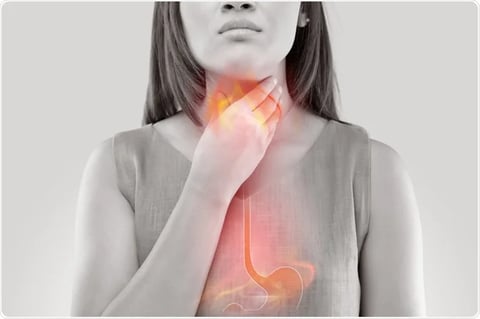



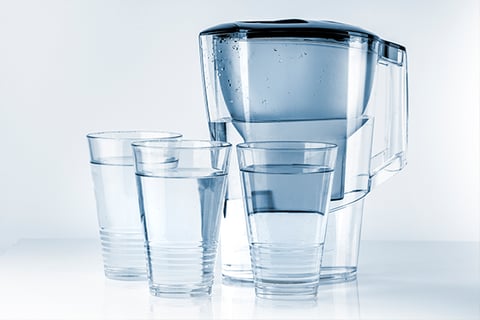

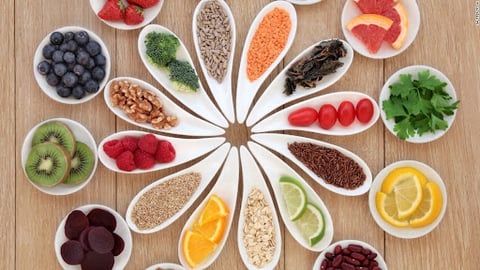

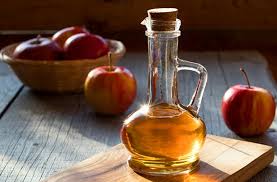

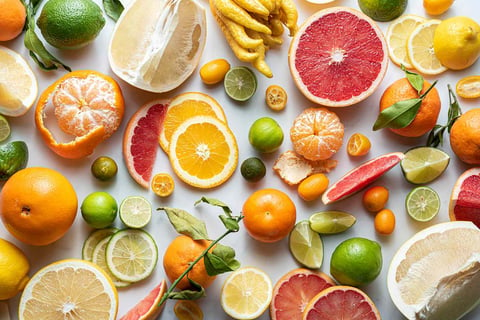



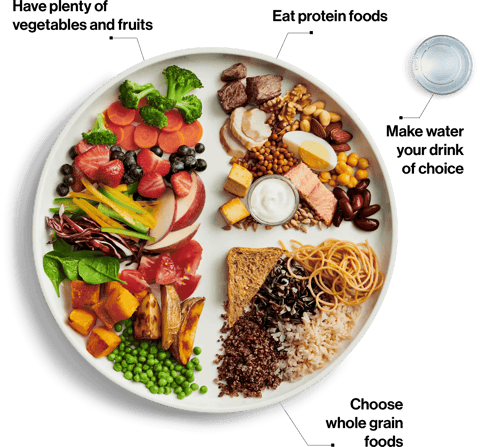

Discover tips for sleep, detox, and mindfulness.
© 2024. All rights reserved.
